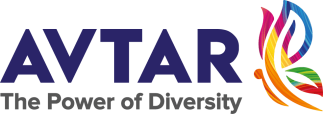Since the concept of Diversity, Equity, and Inclusion (DEI) has assumed importance, organizations across the globe have been on a sprint to leverage and enjoy the perks of it to become the market best or industry frontrunners. A collaboration of diverse people, which brings in multidisciplinary skills and talents, is nice to have provided it is towards the business goals together in a synchronized format for the benefit of the organization and the people themselves. It requires a robust organizational approach, where the leaders rise to become the role-models or evangelists. With numerous studies proving the importance of culture in building an effective organization, the leaders’ contribution and accountability towards DEI and business are important. To specify, not just leaders, but inclusive leaders are the future-makers of an organization.
So, what do Inclusive Leaders bring to the table?
Autonomy from Empowerment
A report published by the Academy of Management, quoted by Harvard Business Review (HBR) states, that empowered teams are more productive and proactive, provide better customer service, and show higher levels of job satisfaction and commitment to their team and organization. Inclusive leaders are aware of their employees’ potential. Micro-management or regular check-in on project completion status are off their responsibilities list. They trust their people and encourage them to take up greater responsibilities to nurture future leaders within the organization. As a result of this action, employees tend to work freely, in terms of the business requirement, exhibiting their excellent form as empowered team members. The leader’s influence and trust in employees not only create a positive organizational culture but also build leadership intent within individuals, resulting in higher business success.
Innovation from Inclusion
Leaders in today’s workforce are considered culture drivers who lead through actions. Their intentional approach in driving motivation through conversations with the employees on their ideas and interests gives way for creative and innovative outcomes. By offering all employees the right platforms and voices to share their viewpoints and being active listeners, inclusive leaders tend to gain the trust and conviction of employees in expressing their thoughts towards business decisions. Successively, this leads to assured positive impact. Another HBR study reports, teams with inclusive leaders are 17% more likely to report that they are high performing, 20% more likely to say they make high-quality decisions, and 29% more likely to report behaving collaboratively.
Culture from Camaraderie
As mentioned earlier, an organization’s culture is dependent on the leader’s potential to bring equity and fairness to all the diverse populations working in the organization. The archaic model of strict and hierarchic categorization of employees based on ranks has been abandoned. DEI has gained prominence in today’s workplaces. Inclusive leaders ensure that all the employees are given respect and treated equally. The same reflects in the organizational culture when the entire workforce starts following the same path enabling inclusive workplace practices.
How can organizations support?
Of course, enablers are the essential requirement for any initiative to see success. For inclusive leadership to see the expected results and stay abreast with the trending DEI practices, organizations have to enable the right digital tools, resources, and training and developmental sessions for leaders.
Some requisites are listed below.
Goal Setting: Integrate business goals with DEI goals.
Training and Development Programs: Educate the leadership team through development programs.
Digital Tools and Platforms: Empower through regularized DEI data through people management tools.
Accountability and Incentives: Incentivizing leadership accountability in DEI efforts.
Towards a successful business trajectory, leaders are the ideal pathfinders and makers. Their leadership impact is what will define the culture, people, and business of any organization.






